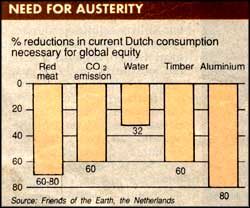Energy and AI
<p>The IEA’s special report Energy and AI, out today, offers the most comprehensive, data-driven global analysis to date on the growing connections between energy and AI. The report draws on new
<p>The IEA’s special report Energy and AI, out today, offers the most comprehensive, data-driven global analysis to date on the growing connections between energy and AI. The report draws on new
MOTIVATED by the need for a holistic understanding of the impact of human activity on the earth's natural phenomena, scientists in the last decade have been studying the earth as an entire system,
GERMAN environment minister Klaus Topfer has come under fire for his tough green laws such as the one against packaging. Environmental ministries, he says, are like end of the pipe treatment plants: They are responsible for cleaning up the mess made by ot
THE WEB is getting tighter. The South is finding out that the funds it was hoping to get to pay for global environmental problems are entangled in countless issues. The Global Environment Facility

In 1992, even rich nations began to feel the pinch of impoverishment and it hurt enough to make them cut down on global charity

Environmental space may be defined as the total quantity of natural resources that can be used on a sustainable basis, for example, the total quantity of carbon dioxide that can be released into the

There are several reasons why the UN finds itself bereft of power today. Part of the crisis results from the cash-strapped organisation"s own weakness. Another significant factor is the increasing influence of the World Bank, IMF and GATT on global econom
EVERY time an American family decides to take its car out, the resulting carbon dioxide adds to the existing stock in the atmosphere for at least a hundred years. When the polar cap cannot
A proper inventory of atmospheric emissions from natural sources is basic to our understanding of the atmospheric cycle of the trace metals (and metalloids), and is also needed for assessing the extent
Governments in many countries are increasingly aware of the urgent need to make better use of the world's energy resources. Improved energy efficiency is often the most economic and readily available means of improving energy security and reducing greenhouse gas emissions. To support better energy efficiency policy-making and evaluation, the International Energy Agency is developing in-depth indicators of energy use, efficiency trends and CO2 emissions. This publication provides a summary of the key results of the indicators work so far.